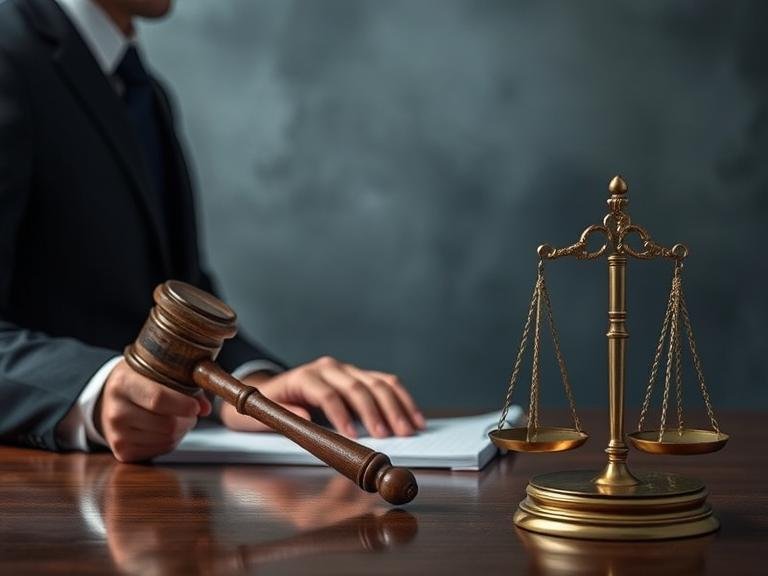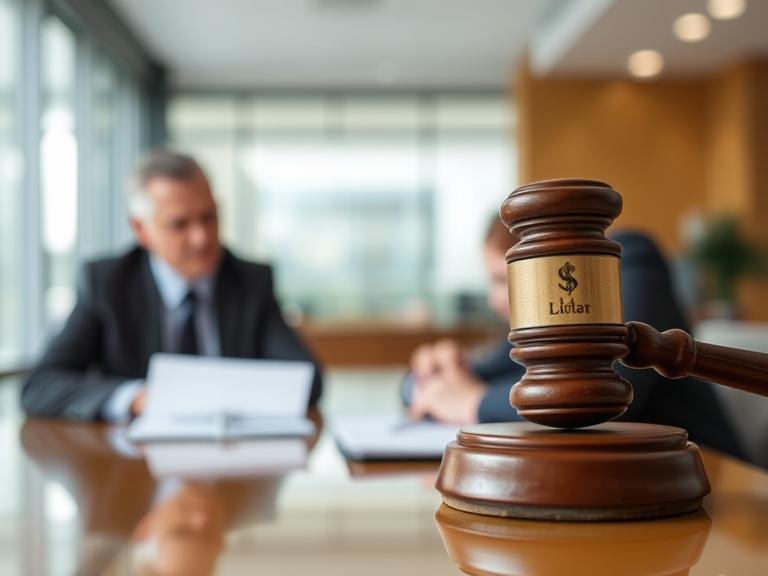Criminal charges can often feel like an overwhelming challenge, but defense attorneys are your ally, guiding you through every step of the process. By working with Raleigh criminal defense lawyers, people get critical legal help, strategic navigation, and aggressive representation intended to protect their rights at all stages of a legal process. Defense attorneys go beyond being present in court. Defense attorneys will negotiate with law enforcement, challenge misconduct of the investigators, and protect due process. Regardless of going to court, criminal defense attorneys help protect the interests of the accused. Often defense attorneys will help weigh risks, explain options, and act as a sounding board for their clients, while they make important decisions that may affect the course of their lives.
Initial Consultation
The first step to any robust defense is an initial consultation between the Raleigh DWI lawyers and the case facts. In this meeting, the attorney would discuss the charges, review the evidence, and evaluate possible defenses. Open and candid communication allows your lawyer to receive all necessary information to create a plan of action for you. A full review of the case may reveal important facts or constitutional issues that could affect the outcome of your case. Your lawyer will talk to you about the potential outcomes of the case and their suggestions for the best approach, with options to negotiate a plea deal or prepare for trial.
Investigation and Evidence Collection
A strong defense will require a thorough investigation. Defense attorneys will take the initiative to seek out evidence that may help the defendants in the case, interview potential witnesses, and discuss evidence with forensic and/or technical experts. A diligent review of evidence may also uncover discrepancies in the law enforcement reports, may offer suggestions about other perspectives, as well as potential violations of the defendants’ rights, such as unlawful search and seizure or coercive confessions, that might support the defendant’s motion to suppress. Comprehensive evidence gathering, which may use a variety of digital means or other methods of physical evidence collection is not only an exercise in disproving the prosecutors’ case but is about bringing the critical facts and context into consideration regarding the events. Thorough evidence gathering can also facilitate plea negotiations by illuminating the strengths and weaknesses of each case. Gathering evidence is another means to ensure justice is pursued fairly and that relevant facts are reviewed with proper considerations in the legal process.
Negotiating Potential Plea Deals
Most criminal cases will come to resolution and never go to trial, usually through negotiations between defense attorneys and prosecutors. Plea agreements can mean agreeing to a lesser charge, reduced sentence, or not coming to trial at all. Negotiating these agreements requires a nuanced understanding of both legal precedents and the particular facts of the case. The defense lawyer evaluates the pros and cons of settlement offers, discusses the prospects for success at trial with the client, and negotiates agreements that reduce the long-term effects.
In some cases, a plea deal may be the most reasonable and favorable result, particularly when the prosecution has a strong case or when avoiding a public trial would be better for the client. A capable lawyer helps ensure that the client understands the ramifications and assists clients in making informed choices that will benefit them at least in the future.
Courtroom Representation
When the criminal case is set for trial, the role and work of the defense lawyer really becomes in focus. Advocacy in court means setting out a strong legal argument, challenging the evidence presented by the prosecutor, and cross-examining witnesses to reveal inconsistencies or bias. The lawyer may present witnesses for the defendant as well as alternative explanation to be considered by the jurors or judge and take into account any mitigating factors.
Defense attorneys that are experienced in courtroom practices leverage experience and knowledge of the rules in order to benefit their clients in the process; they have their own persuasive way to present a theory of defense when appearing in court and are well-entrenched in the process. They will have an important presence before the jury or judge and be willing and prepared to hold the prosecutor to their burden of proof that must overcome beyond a reasonable doubt.
Post-Conviction
The end of a trial does not mean that the advocate’s representation ends. After conviction, criminal defense lawyers may seek for appeals, or other forms of seeking for modification of the terms of sentencing based upon reasons involving errors in law or procedure of the trial process, expanded, or other circumstances that arise after conviction or, the existence of the modification of law or norms that have fairness principals in mind. As part of guiding the client, the lawyer may help with any guidance needed with probation or parole after serving their sentence, or expungement process to eliminate the conviction as any part of a person’s historical record all in the effort to lessen the long-lasting weight of a conviction.
This ongoing representation can often provide a second chance for people impacting some change in their lives and ways of thinking for the clients and the lawyer as they may help as they re-enter society in various degrees of the process of complying with the legal system. Legal pundits agree there is value for the public and society to seek strong post-conviction representation to help protect the rights of individuals as well as to promote justice reform given the reality of certain procedures and processes across the country.
Community Role in Defense
To understand the trend of community involvement in criminal defense consider that today’s criminal defense is no longer the domain just for attorneys alone. Criminal defense lawyers today are more open to utilizing community resources in the legal process. Participatory defense is an example wherein the defendant, families and various community members as well as the lawyer collaborate together in the legal process. In a participatory defense model, members of the community joined in collaboration with the attorney could possibly all work together in courtroom proceedings collecting mitigating evidence, all while the lawyer represents the client and serves as an advocate for community helpers. In this process, how the community may direct their efforts inside the courtroom or outside the courtroom possibly could have an effect on outcomes, case status, as well as promote transparency, accountability and fairness principals into actions within the legal system and beyond. This is the idealism of participatory defense.
The movement of participatory defense recognizes that for the most part, the people who have been impacted by areas of the criminal justice system hold both the knowledge and motivation to enact changes in order to encourage the participation of community efforts relative to undoing issues faced when stopping unfair and rational injustice connected to the legal context. The involvement of the community will only strengthen the defense, and emphasize the idea that community involvement represents one of those big ideas of sharing responsibility across the board in a quest for justice.
Conclusion
Criminal defense lawyers play a critical battling role in protecting individual rights into all aspects that arise from systems and practices in our criminal justice system from initial consult and investigating the case, to the mounting challenges of trial and post-conviction advocacy on behalf of individual clients to protect and give hope to fair outcomes for all involved. If you or a loved one is just at the beginning of a process or facing an appeal, there is no better first step than making sure to get the lawyers avail that offers experienced defense representation.




